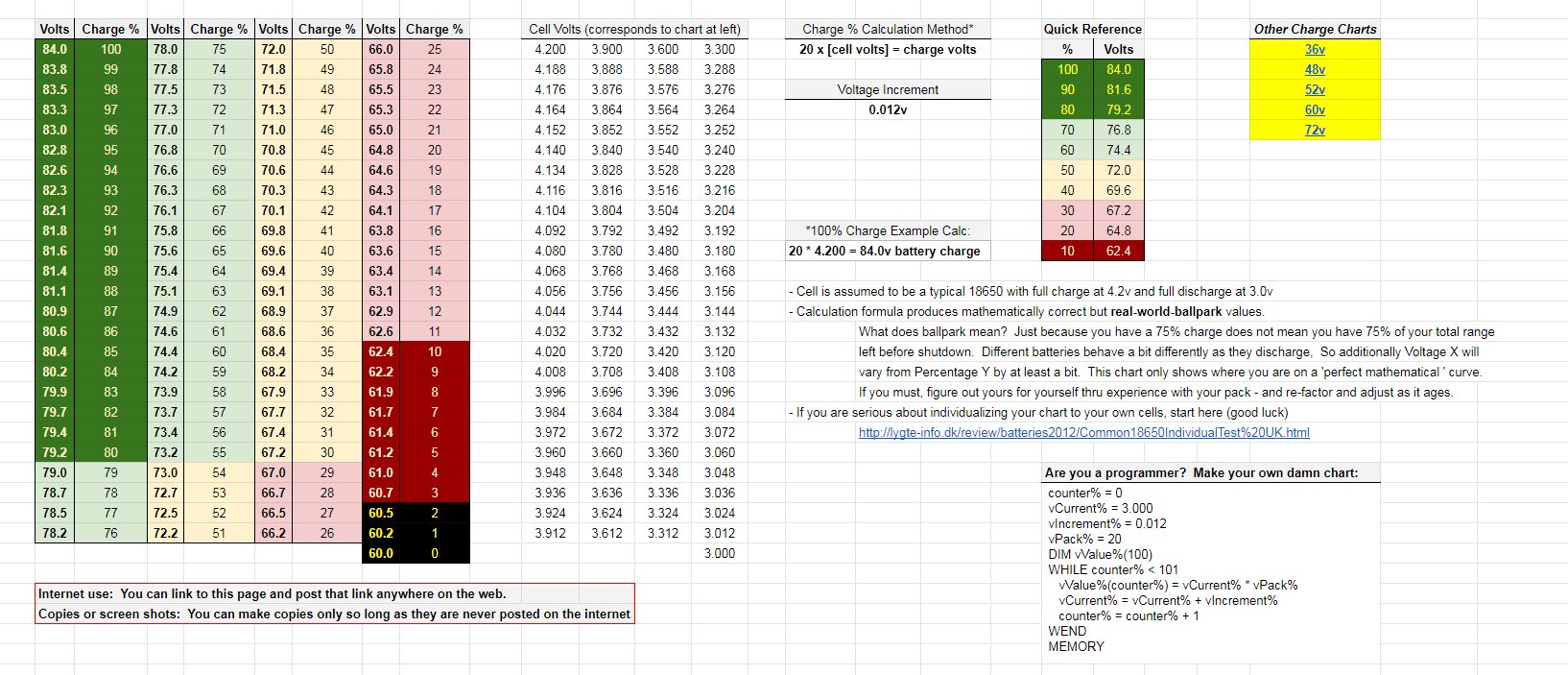Hello all!
Let me cut to the chase. I have a 15KW off-grid solar panel set up with 50KW of home battery storage. I have also modified my golf cart with a 5KW lithium battery. I can monitor all batteries using Solar Assistant via RS485 communication. I want to dive into powering my bikes and kayaks with lithium batteries. I have 3 kayaks and 3 bicycles. I envision a bank of 6 wall-mounted *48V batteries connected in parallel to my solar charge controller output and my home/golf cart batteries. When not using the bikes/kayaks they will contribute as battery backup to the home.
Questions:
1. Why are ebike batteries labeled 48v and 52v? 48V lithium is nominal they charge well above 52v but its still a 48v battery
2. Are there any prebuilt ebike batteries with rs485?
3. I assume the ebike batteries have BMS that will limit incoming/outgoing currents. Can ebike batteries charge/discharge at 30-60 amps?
Thanks!
Let me cut to the chase. I have a 15KW off-grid solar panel set up with 50KW of home battery storage. I have also modified my golf cart with a 5KW lithium battery. I can monitor all batteries using Solar Assistant via RS485 communication. I want to dive into powering my bikes and kayaks with lithium batteries. I have 3 kayaks and 3 bicycles. I envision a bank of 6 wall-mounted *48V batteries connected in parallel to my solar charge controller output and my home/golf cart batteries. When not using the bikes/kayaks they will contribute as battery backup to the home.
Questions:
1. Why are ebike batteries labeled 48v and 52v? 48V lithium is nominal they charge well above 52v but its still a 48v battery
2. Are there any prebuilt ebike batteries with rs485?
3. I assume the ebike batteries have BMS that will limit incoming/outgoing currents. Can ebike batteries charge/discharge at 30-60 amps?
Thanks!

